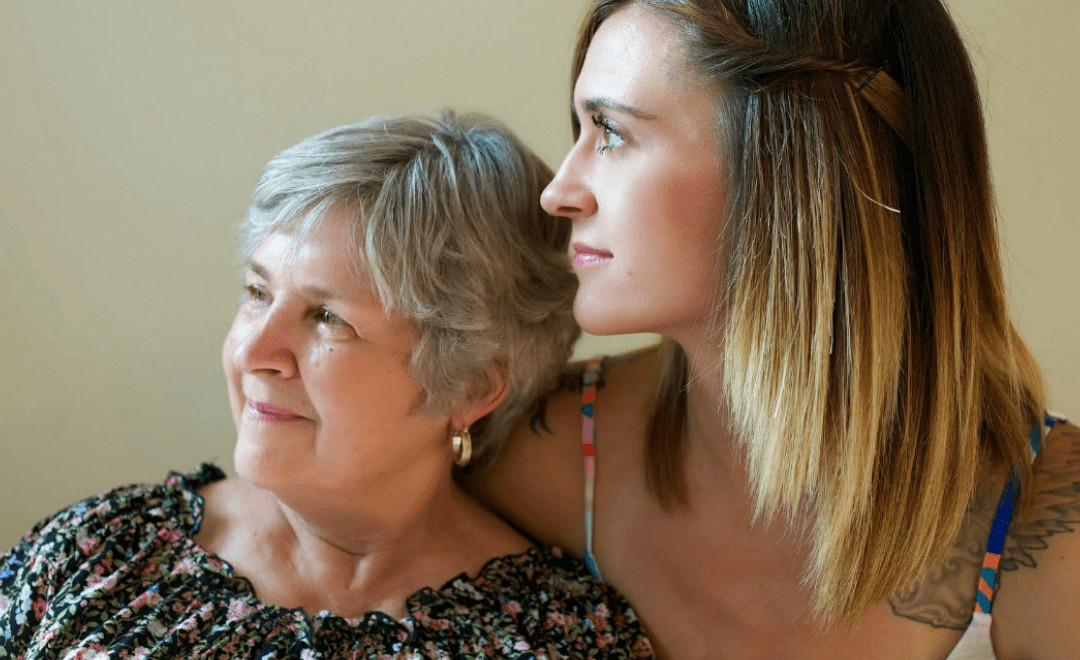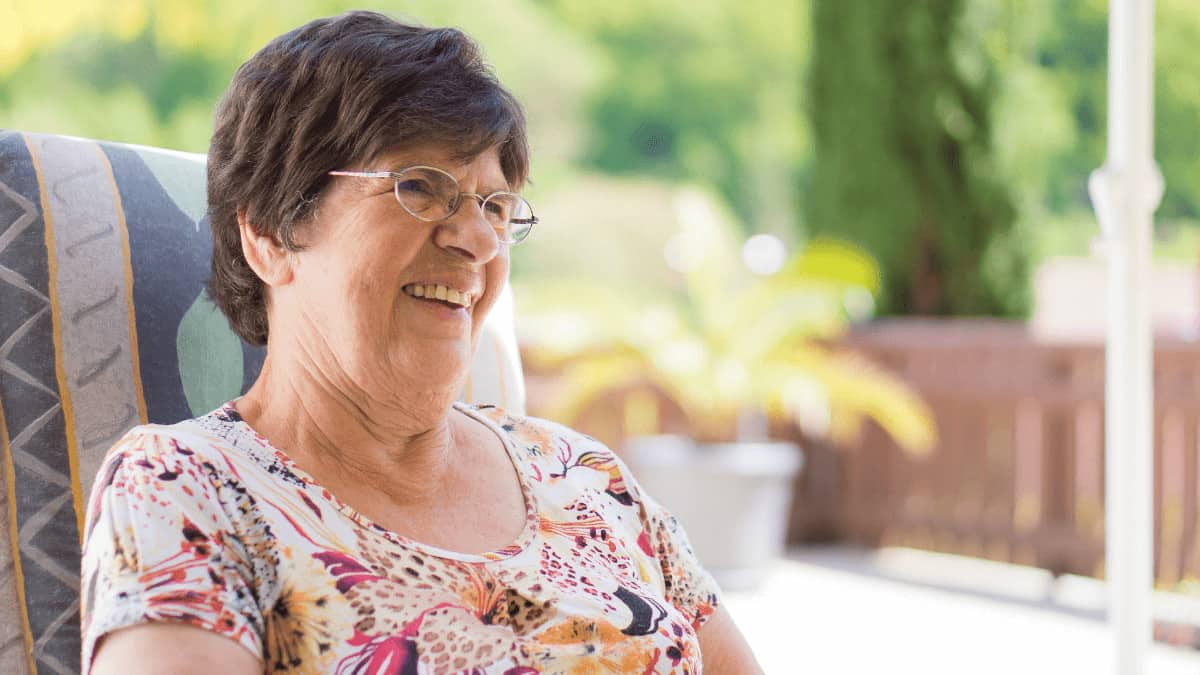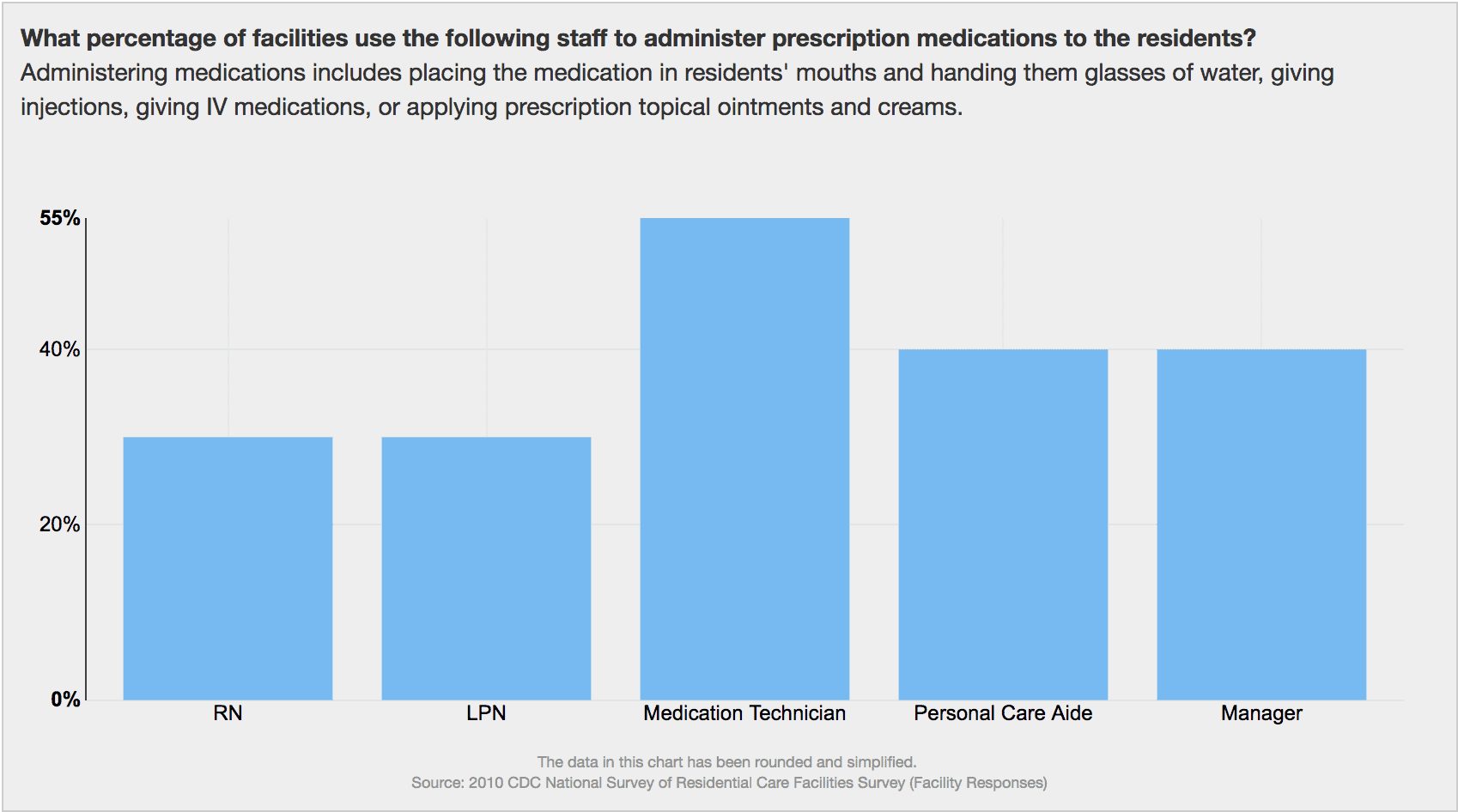Looking for an assisted living facility? Don’t exactly know what they are or what they should offer?
When making decisions regarding senior care for your or your loved one, assisted living is an essential topic to explore and consider.
We want to help you understand assisted living and find the best community for your needs.
Read everything you need to know in our Ultimate Guide to Assisted Living!
What’s in this Ultimate Guide? - An Index
- What is Assisted Living?
- Assisted Living Definition
- Assisted Living Facilities
- What is Included in Assisted Living?
- Assisted Living Apartments
- Types of Assisted Living Facilities
- Assisted Living Facility Costs
- What is the Difference between Assisted Living and Nursing Homes?
- How to Find an Assisted Living Facility
- Assisted Living Requirements
- What is Senior Living?
- Assisted Living Medication Management
- Assisted Living Policies and Procedure
- Assisted Living Community
- Activities for Seniors in Assisted Living
- Choosing an Assisted Living Facility
What is Assisted Living?
Yes, assisted living is different than a nursing home. In short, it offers more help to residents than a simple retirement facility, but it’s does not have as many medical resources and intensive care as an nursing home would.
To summarize, assisted living is NOT
- a nursing home
- a retirement home
Assisted living IS a community usually (but not always) for seniors that provides community life and other help ranging from meal services to medical management to help maintain a healthy and comfortable day-to day-life.
Related Articles:
Assisted Living Definition
Assisted living is,
“a combining of housing, personalized supportive services and health care designed to meet the individual needs of persons who need help with the activities of daily living, but do not need the skilled medical care provided in a nursing home.”
-from Argentum
It can be challenging for seniors and other with physical or medical conditions to live independently.
Assisted living facilities help ensure that residents are living safely, happily and healthily, often as they are transiting into more advanced ages and more dependent medical needs.
In an article differentiating assisted living from independent living, United Methodist Homes says,
“Assisted living is a great option for individuals who have difficulty with daily activities at home. Residents at assisted living communities are free to live an independent lifestyle, but also receive regular support for a range of daily activities ranging from cleaning to meal preparation. “
Assisted Living Facilities
Now what about these assisted living facilities themselves?
It’s all well and good to say assisted living facilities help residents with day-to-day tasks for self care and communal living, but what does that actually mean?
Assisted living first of all provides staff and resources for residents that allow them to live semi-independently while still caring for their needs.
This includes things like medication management and
- social activities
- exercises classes
- other events and clubs
to provide a vibrant communal life and combat the loneliness that plagues many seniors living (and often reclusive) in their homes.
Assisted living facilities can also be covered by Medicaid and other Veteran policies and some health insurance plans.
Related Articles:
What is Included in Assisted Living?
Along with the aforementioned medication management and social activities, there are a lot of services you should expect a good assisted living facility to offer.
Typical things included in assisted living:
Medication management.
Daily meal service and nutritional needs.
Individual or shared apartments.
Housekeeping and maintenance.
Emergency call systems.
24/7 on campus staff and security.
Basic health and wellness programs.
Laundry services.
Transportation arrangements.
Religious services.
Recreational services and social events.
Related Articles:
Assisted Living Apartments
What kind of apartments and room commendations can you expect from an assisted living facility?
Assisted from the services and accommodations the assisted living facility should be providing all of their residents as a whole, there are other distinguishing factors to consider in assisted living apartments.
Just as wheelchair accessible rooms will have wider doorways, assisted living apartments should have characteristics that benefit senior residents.
“Senior apartments are designed for the older adult in terms of convenience such as limited amount of stairs, in-unit laundry, and other physical characteristics. Apartment living offers an easier lifestyle for an older adult since there is no more yard work and household repairs. And because senior apartments are age restricted, older adults are surrounded by people of similar age and interests.”
Though assisted living facilities offer more resources than a simple senior apartment rental, the same sentiment still applies.
And unlike nursing homes which will often have two residents sharing a room within the facility, assisted living apartments can be more spacious and accommodating to semi-independent living.
Types of Assisted Living Facilities
It is easy to overlook the fact that assisted living facilities are not only for seniors.
Though seniors are the main demographic in need to these facilities, there are other types of assisted living facilities as well to cater to the needs of different groups of people.
Assisted Living for Non Seniors
If a person is not able to sustain an independent lifestyle with their condition, an assisted living facility for non-seniors may be a good choice for them to make sure they get the proper care and support they need.
Disability Assisted Living Facilities
These kind of assisted living facilities sometimes offer educational and training opportunities and resources for disabled residents to grow improve their skills. This could mean things like cooking classes, money management training to help them participate in their own self-care and development.
Assisted Living for Veterans
There are both private and state-run assisted living options for veterans and other resources that help sponsor and pay for this kind of care for our veterans.
Assisted Living Costs
As of 2016, the National average cost of assisted living is $43,000 per year.
National average cost ($) of assisted living per year.
Discounted pricing or other payment options may be available in different states and facilities specifically to benefits military veterans and their spouses.
Note about insurance coverage:
Check your policy or your Medicaid eligibility to see what kind of help you can get paying for assisted living care for your loved one.
What is the Difference between Assisted Living and Nursing Homes?
We’ve touched on this a bit earlier in the Ultimate Guide to Assisted Living, but assisted living and nursing homes are two very different things.
Think of the progression of senior living this way:
- Retirement Home
- Assisted Living Facility
- Nursing Home
With each type of residency comes more medical help and intensive personal care.
Each type of senior living facility listed above has a semblance of senior support and community, but they each have a different focus.
We’re mostly talking about two things: nutrition and medication management.
Here is the main differences between assisted living and nursing homes as detailed by SeniorLiving.org:
Assisted Living
Nursing Homes
How to Find an Assisted Living Facility
Now you know more about what assisted living facilities are and what they offer, but now how do you find the right assisted living facility for you.
Besides factoring in practical things like location, budget, and services offered, there are other resources available online and around the country to help you locate the best assisted living facility for your or your loved one.
We want to help you find the best possible assisted living facility to meet your needs and give you or your loved one the community and care they deserve.
Here is a general checklist of things to consider and research when choosing an assisted living facility:
Safety
Cleanliness
Food Services
Staff Friendliness
Recreational Activities
Facility Reviews
Contact Green Valley Commons for more information about assisted living facilities in Northern Virginia.
Assisted Living Requirements
What are the requirements for being allowed to live in an assisted living facility? Do you have to be able to bathe yourself and feed yourself?
We’ve detailed everything surrounding what assisted living facilities include, but what about the residents? How do you qualify to live in an assisted living facility vs the other types of senior living options?
While there are different laws and regulations by state regarding facility and resident requirements, there is a generally rule of thumb most assisted living residents must follow.
An assisted living facility is generally not suited for the following types of people:
- Those who require daily nursing care
- Those with extensive medical needs
- Those with severe behavioral symptoms
- Those with intense cognitive impairments
When doing your research on which facility is best for your or your loved one, contact a local assisted living facility to ask about their requirements. If you have more questions about assisted living requirements, contact Green Valley Commons.
What is Senior Living?
Senior Living is a more general term that refers to the wide variety of facilities and care resources for seniors to provide them healthy and happy living arrangements for their stage in life.
The term senior living does not just refer to tradition retirement communities or senior independent living apartments.
Such senior living options include:
- Assisted living
- Nursing Homes
- Retirement Communities
- Care Homes/Senior Apartments
- Memory Care or other specialized facilities
Assisted Living Medication Management
Medication management is one of the distinguishing factors of assisted living facilities.
Most seniors require some form of daily medication to combat the plethora of ailments that come hand and hand with aging. That’s just how it goes.
Up to 85% of assisted living residents are in need of help with daily medication management services.

Along with trained staff, it is important for assisted living facilities to either have a licensed pharmacist or doctor either on staff or call to provide easy access to medication refills and renewals.
Related Articles:
Assisted Living Policies and Procedures
Especially regarding medication management and health care, it is essential for assisted living facilities to follow the letter of the law and provide the best services for the residents in their care.
*Specific policies and procedures for assisted living may vary by state.
Assisted Living Pharmacy Services
Assisted living facilities can have a licensed pharmacist or doctor on staff. This increases the efficiency of medication management programs to benefit residents with easy access to prescription refills and renewals.
If there is no pharmacist or other medical professional on staff, assisted living facilities often partner with pharmacies and third-party medication providers (such as the CVS health company Omnicare for example) to provide the medication services their residents need.
“Two-thirds of assisted living providers which offer ancillary services reported using a third-party pharmacy provider, according to a recent online survey from the American Seniors Housing Association (ASHA).” (Read full article here).
Medication Administration in Assisted Living Facilities
The following statistics on medication administrators are sourced from an article from AssistedLivingFacilities.org in conjunction with 2010 survey results from the CDC:
- 27% of the assisted living facilities have RN (registered nurse) who gives prescriptions, which means they either deliver pre-packaged doses or hand the residents the correct dosage. Likewise, 32% of facilites have RNs give injections for IV medications or prescribed ointments.
- 55% of the of assisted living facilities rely on a certified medication aides, medication supervisors, or medication technicians to administer medications to residents.
- 88% have other staff that assists residents with their medications by administering drops, topical ointments, and given reminders to residents who take their own pills to make sure they take their medication on time. ( A 2010 study from the CDC found that 91% of residents in need of medication were able to follow through with taking their medicine with simple oversight and reminders from staff).
Medication Policy and Procedure for Assisted Living
“Staff must accurately administer medications. This means giving the right medicine at the right time to the right patient and documenting it thoroughly. In a 2013 study of the State Regulatory Review conducted by the National Center for Assisted Living showed that 63% of the staff at the ALF offer help and administration of prescription medications to residents. In the 2010 CDC Study of Residential Care Facilities, 68% of facilities reported helping the residents with medication.”
Assisted living facilites must have a written Medication Management Plan that is usually approved by an entity such as the Board of Nursing or Board of Pharmacy in conjunction with the directors of the assisted living facility.
Click here to read the specify legal points outlined by the Code of Virginia pertain to the regulations for assisted living, including the required policies for a Medication Management Plan.

Assisted Living Community
Besides medication management, one of the key components of any assisted living facility is the community.
Not only does communal life provide stimulating social interactions that help decrease loneliness and increase happiness, these communities often have a lot more to offer.
Like we’ve mentioned previously, assisted living isn’t just about health care:
it’s about creating a safe a friendly environment for residents to live comfortably and semi-independently.
This includes providing in house amenities, services, events, and more to offer engaging social, physical, and intellectual activities.
Assisted Living Activities
The activities offered by assisted living communities are often a big consideration when choosing what facility is best for you or your loved one.
Within the facility itself, maybe there is a pool or nice outdoor grounds to offer physical activity and fun. Holiday parties and other events are great ways to both foster community and create enjoyable activity at the same time. Off-campus field trips, speciality clubs, classes, crafts, and movie nights are all examples of the types of activities for seniors that an assisted living facility may offer.
Get the Creative Juices Flowing: Senior Living Living Activity Resources and Ideas
- Common Assisted Living Activities
- Assisted Living Activities Ideas
- Assisted Living Activities Sample Monthly Calendar
- Activities for Older Adults and Elderly in Assisted Living
- Fun Weekly Activity Ideas
- Activities for Seniors in Retirement Homes
- Unique Activities for Seniors
- New Activity Ideas for Elderly Men
- Top Activities for Older Women
- Crafts for Assisted Living Residents
- Indoor Activities for Seniors

Choosing an Assisted Living Facility
Still need help choosing an assisted living facility? We know, it’s a lot of information to digest.
Besides knowing what things to look for when it comes to medication management, facility accommodations, and community life, don’t forget to look get third party advice and reviews to help inform your decision.
When you’re looking for an assisted living facility, we recommend visiting the facility first hand and asking questions to see with your own eyes all that they offer. Look for online reviews, talk to staff members, and get feedback from residents about their experience at that facility.
Have more questions about assisted living?
Contact us at Green Valley Commons.
We are an assisted living facility in Winchester, Virginia are are happy to help answer questions and find the right senior living community for you or your loved one.









